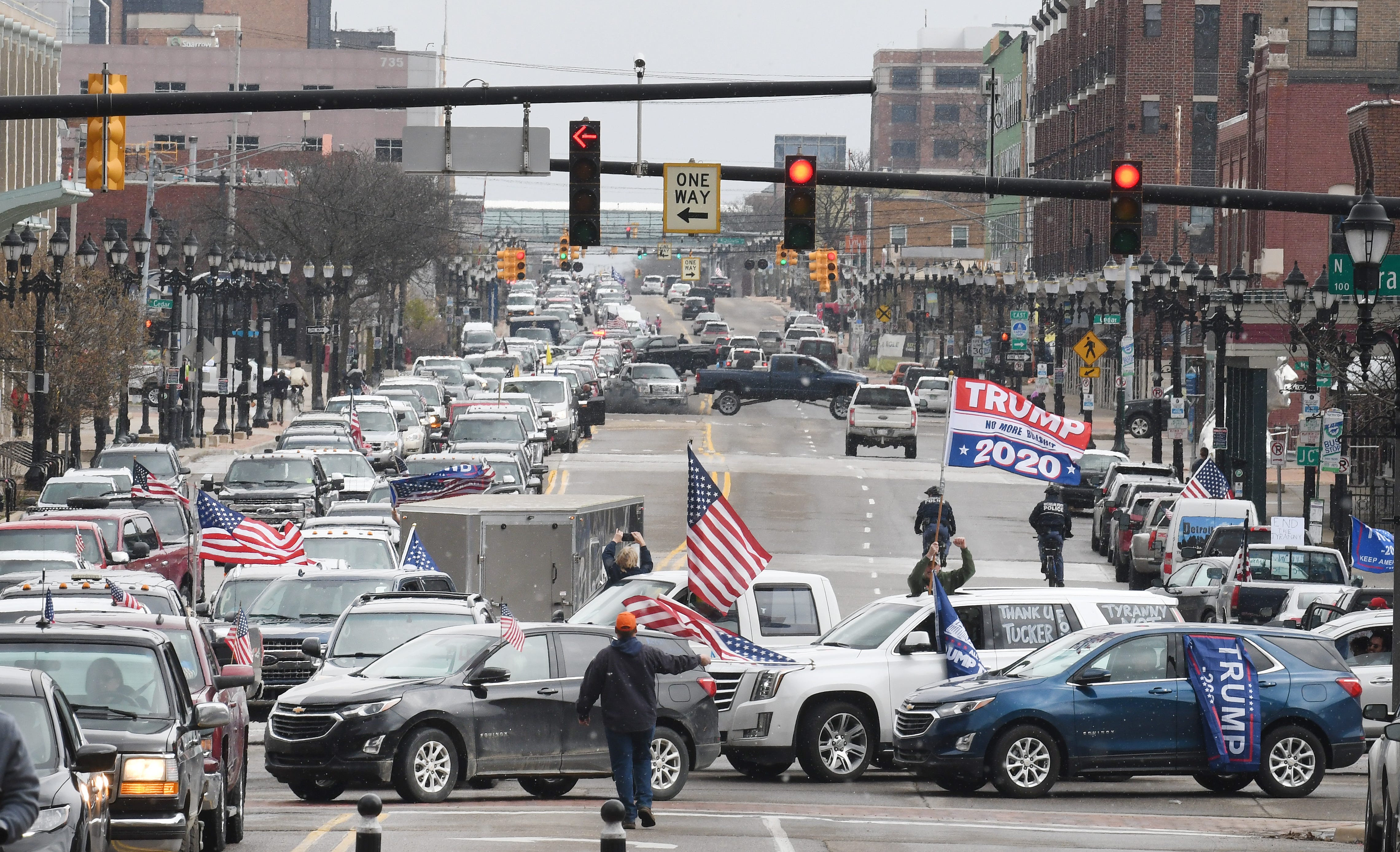Michigan GOP lawmakers seek to curb governor's emergency powers
 Beth LeBlanc
Beth LeBlancLansing — Republican lawmakers are seeking to limit the governor’s authority in a state of emergency, introducing several bills Thursday that would curb two laws under which Gov. Gretchen Whitmer has been issuing executive orders during the pandemic.

“We’re not trying to take away all of the governor’s power,” said Rep. Jason Sheppard, the Temperance Republican who sponsored one of the bills. “We’re just trying to have the Legislature have some kind of input in the process. That’s really what the crux of the problem is.”
Whitmer has signaled she would veto the legislation. And it’s unclear when lawmakers would take the bills up, considering the restrictions the coronavirus pandemic has placed on legislative session.
“Gov. Whitmer will not sign a bill that would diminish her ability to protect citizens of this state from a deadly disease that has already killed thousands of people in Michigan,” said Tiffany Brown, Whitmer’s spokeswoman.
Confirmed coronavirus cases in Michigan reached 29,263 Thursday afternoon, while the number of deaths from the virus reached 2,093.

The bills in the House and Senate would shorten the window under which a governor could declare a state of emergency under the Emergency Management Act from 28 days to 14 and allow police to issue a civil fine for a violation of an executive order instead of the current misdemeanor penalty.
The penalty for a misdemeanor is a $500 fine and/or 90 days in jail but the legislation would limit a civil infraction fine to $250.
Currently, under the Emergency Management Act, the governor’s initial emergency declaration remains in place for 28 days before she must seek lawmakers’ approval for an extension.
Bills introduced by Republican Sen. Tom Barrett of Charlotte would repeal a separate governor's emergency powers act from 1945 that Whitmer has cited in her emergency declarations.
"We feel that we have to balance the power in the state," Barrett said. "The Legislature is a co-equal branch.”
Barrett argued the 1945 law applies to catastrophes involving physical violence or riots specifically and wouldn't apply to the pandemic, but he's moved for the act's repeal to remove any doubt as to its current application.
Two other bills from Barrett would amend the 1945 law and the Emergency Management Act to prohibit the governor from banning during an emergency "the sale or purchase of firearms, ammunition, or other weapons."
After Hurricane Katrina in 2005, the Michigan Legislature and other states passed laws prohibiting the seizure of firearms or ammunition during an emergency, Barrett said. His bills would extend that to prohibit the forced closure of gun stores during an emergency.
Gun stores are not listed as essential under the federal guidelines Whitmer cited in her order. And store owners remain uncertain, should they stay open, about whether police and regulators will consider the Second Amendment over the executive order, Barrett said.
"To give them certainty, I think we have to say, no, the emergency powers of the governor do not apply to this case," he said.
Similar bills were introduced in the House by GOP Reps. Brandt Iden of Oshtemo Township, Steve Johnson of Wayland and Jason Wentworth of Clare.
The proposed changes from Republicans come a little more than a week after Whitmer extended her stay-home order. The order implemented new restrictions that ban in-store sales of gardening and home improvement supplies, prevent travel to a second home and deem landscaping and home construction work as nonessential.
The restrictions sparked pushback from Republicans, at least two federal lawsuits, and a massive protest Wednesday outside the Capitol.
Michigan State Police estimate between 3,000 and 4,000 people attended the protest, called Operation Gridlock. Most people were inside their cars, gridlocking traffic around the Capitol for hours and honking their horns continuously.
Lawmakers had been discussing changes to the Emergency Management Act for several weeks, Sheppard said, but the further limitations on travel and purchases last week accelerated those discussions. The state needs the checks and balances that the Legislature can offer, he said.
“We want to work with our governor,” Sheppard said. “We just think that there’s certain things in the state of Michigan that needs to be handled in a manner more equal to what other surrounding states are doing.”
Legislators earlier this month approved an extension of Whitmer’s initial March 10 state of emergency, extending it 23 days through April 30. The extension fell far short of the 70-day window Whitmer had requested.
eleblanc@detroitnews.com